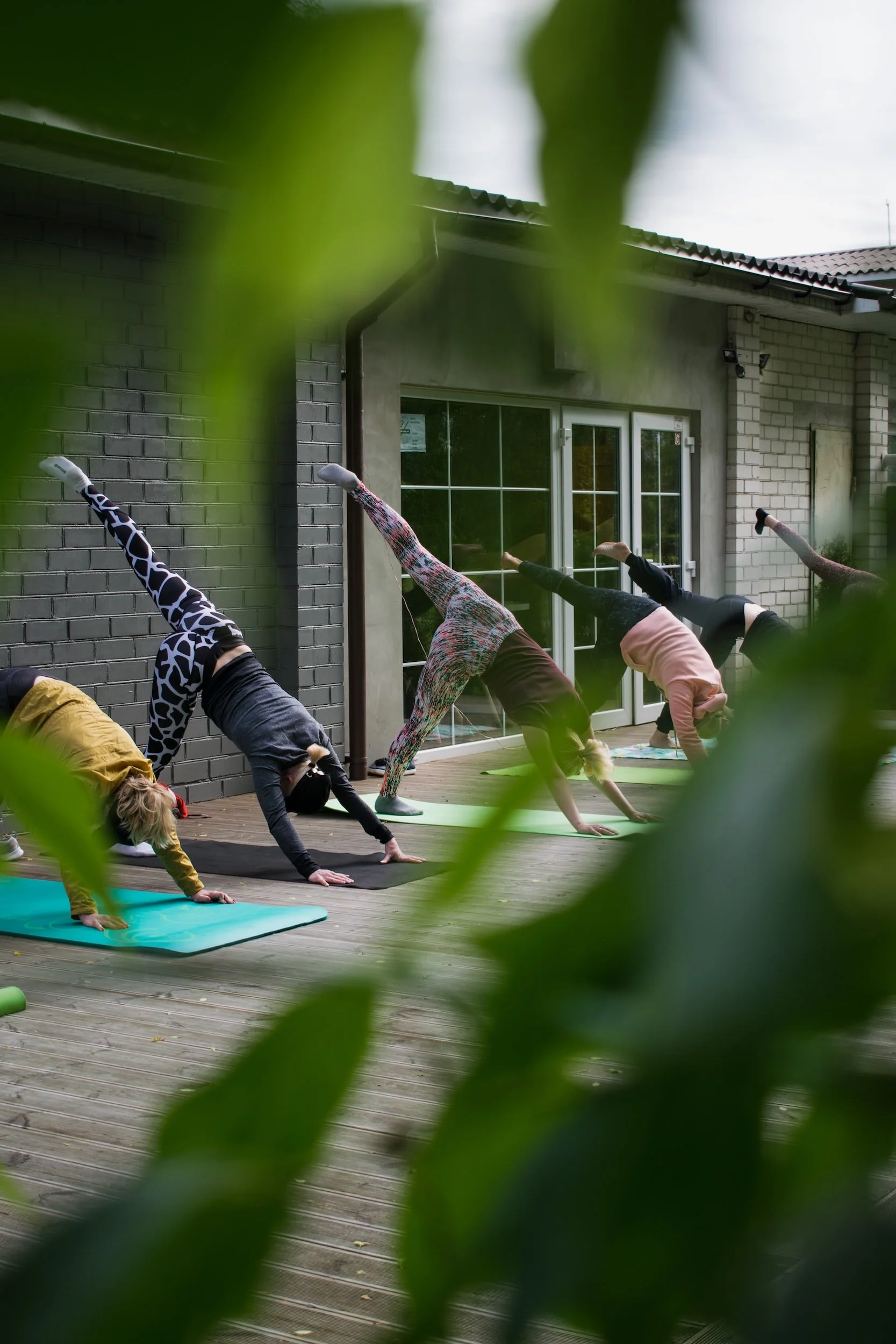
Yoga Teacher Training
Enhance your practice and enlighten others.
A Trauma-Informed Approach
We have adopted a trauma-informed approach in our yoga teacher training curriculum and classes. This includes six principles that will guide you on your journey to becoming a yoga teacher or developing your personal yoga practice. These principles include (1) safety; (2) trustworthiness/transparency; (3) peer support and mutual self-help; (4) collaboration; (5) empowerment and choice; and (6) cultural, historical, and gender acknowledgment. Adopting this approach in our teacher training means you will gain awareness, sensitivity, constant attention, and cultural awareness at the foundational level of your growth in yoga. This is not accomplished through a checklist of things to do or the teaching of a single technique; instead, it is integrated into every aspect of understanding and teaching that you will receive in this training. So how will these principles be integrated into yoga teacher training?
Safety
No individual can function if they do not feel safe. It is important that you develop a sense of safety on and off your mat in training so there is room for you to grow and explore. As a yoga teacher learns to understand safety in their journey, they can teach safety safely. As a teacher, you must value your students’ safety and do your best to ensure it is a priority in all you teach.
Trustworthiness/Transparency
In any yoga teacher training program, you must be able to trust the information being provided. As a program, we strive to only present training material from trusted yoga-aligned sources, peer-reviewed research, and traditional yoga texts. Through our actions, we teach from a place of humbleness and openness about yoga practice and perspectives in society.
Peer Support and Mutual Self-Help
The idea of “union with self” is a core concept in yoga. It is what we strive for on and off the mat, and it is also understood that on the journey to self-actualization, we will at times need help. Peer support and help throughout this process is instilled from Day 1. It is important to help and care for yourself, but also to be a citizen in this world by supporting and caring for others. Understanding the need for both brings you as a teacher into the full spectrum of what it means to be a yogi. You are at times the teacher, and you understand there will also be times when you are the student. These ideas do not work against each other but ensure in a trauma-informed environment that you are seen, heard, and not alone.
Collaboration
We believe healing and learning happen in relationships and in the meaningful power of sharing. Everyone has a role to play in a trauma-informed approach. All individuals involved impact, create, contribute, and share in the training experience. The shape of the learning environment is co-created by trainers and students. We work together to create an individualized environment that differs across each training group based on the needs of the individuals who make up each group.
Empowerment and Choice
At its core essence, yoga is empowering. A yoga teacher training program should carry this essence throughout the training. To strengthen the development of your teacher training experience, it is critical that you recognize the importance of choice, which is also essential to a trauma-informed perspective. This perspective acknowledges that every person’s experience is unique and the choices they will make on this journey are their own. It also reminds us that individuals who have experienced trauma may have been in situations where they didn’t always feel they had a choice in what was happening to them. Teaching choice and empowerment in all areas of yoga training reminds us that we have access to these things in our lives and encourages yoga teachers to continuously teach these ideas in their classes.
Cultural, Historical, and Gender Acknowledgement
If there is not an acknowledgment of the roots of yoga and the culture that has provided this spiritual tradition, then there is NO yoga. Cultural appropriation will NOT be upheld to the best of our knowledge, and yoga will be practiced and treated with respect for both cultural and traditional origins. Understanding of colonization, whitewashing, and white supremacy in the west and its relationship to yoga will be discussed. It will also be acknowledged that many diverse groups of people come to this practice with rich backgrounds and experiences. We acknowledge the importance of people being their authentic selves and understand everyone has had different lived experiences. We also acknowledge that people come to yoga with trauma and experiences of survival, and we acknowledge that all these things should be considered when working with people.
200hr. Yoga Teacher Training
Jan 8-March 26
2023
Ocala Fl
Location: The Training Toole 3887 SE Lake Weir Ave, Ocala, FL 34480
Dates: 12 Week Hybrid Format- 2023
In-Person: Sundays 8-6 pm - Jan and Feb
Online: Fridays 6-9 pm- Jan-March
Sundays 6-9 pm- March
Cost: $1,300 Deposit $200
Yoga Certificate: 200hr YTT Certification and Chair Yoga Certification
200 Hour Training
What is a 200-hour yoga teacher training course?
A 200-hour teacher training provides a foundational understanding of the guiding principles of yoga. In this training, you will embark on a journey of self-discovery as you develop the skills needed to become a yoga teacher. You may choose to teach at the end of this training, or you can use this training to continue to strengthen your own personal practice and gain a deeper understanding of yoga.
200-Hr. Yoga Training Modules:
Techniques, Training, and Practice
Anatomy and Physiology
Yoga Humanities
Professional Essentials
Teaching, Adjusting and Assisting Yoga Asana
For teachers, many techniques must be employed to guide a class through a sequence of asanas. The use of physical demonstrations, verbal cues, and metaphors will be discussed and demonstrated. Ethical practices, legal considerations, and evolving as a teacher with the use of different teaching styles will be explored.
Anatomy Workshop
The context yoga provides for the study of anatomy is rooted in the exploration of how our life force expresses itself through the movements of the body, breath, and mind. The structure of the body, muscle, connective tissues, etc., will be discussed in the context of its importance to yoga asana.
The Eight Limbs, Philosophy, and History of Yoga
These eight limbs act as guidelines for how to live a meaningful and purposeful life. They serve as a prescription for moral and ethical conduct and self-discipline; they direct attention toward one’s health, and they help us acknowledge the spiritual aspects of our nature. The historical origins and philosophical foundations of hatha yoga and its lineages will be discussed.
Special Populations
Due to the transformational nature of yoga, special consideration must be taken for different populations that may be included in a yoga class. Discussions and understanding of how to instruct yoga for special populations will offer posture modifications that create a safe environment for all types of students. There will be discussions on and training for how to consider students’ physical, mental, and emotional limitations during yoga. Discussion of how to observe your class and have an open dialogue with students while considering laws and regulations that do not require students to disclose health information will take place. Understanding special populations also helps you develop valuable skills for working one-on-one with and meeting individual students’ needs in a group setting.
Meditation and Mantra
Meditation and chanting techniques will be taught as an integral part of the entire path of self-exploration, self-discovery, and self- transformation. The use of meditation in class and the subtle energy that awakens clearer awareness in the body and mind will be discussed. Students will understand what a mantra is and how to develop one for themselves and their practice.
Anatomy Workshop: Energetic Body
Investigation of the subtle body- combining perspectives of yoga philosophy and anatomy will take place. We will also investigate the esoteric anatomy of the chakra and nadi systems and the structural body as it is charted in contemporary systems of holistic health.
Yoga Ethics
The Yoga Alliance Registry Code of Conduct outlines acceptable, ethical, and professional behavior by which all individuals in the business of yoga should operate. The propriety of touch is an issue that concerns all healthcare and healing professionals, yet the ethics of touch may be more complex in yoga teaching than in other licensed professions. Discussions of ethical, legal, and moral conduct will be explored and taught. Legal issues, unethical case studies, and issues currently present in the yoga community will be discussed.
The Business of Yoga
Understanding how to work as a yoga teacher, own a yoga business, marketing, and the evolution of yoga as an industry will be discussed. Considerations of Yoga Alliance registrations, protections, liabilities, and insurance will also be discussed.
Sequencing and Class Structure
Basic philosophy, principles, and sequencing of a class will be taught. The planning and teaching of a yoga class will be discussed, along with ideas about creative expression, safety considerations, and the ever-changing and expanding yoga movement.
Ayurveda: The Yogic Diet and Lifestyle
Ayurveda, the traditional medicine of India, and its natural and holistic approach to well-being will be discussed. Ayurveda includes all aspects of human nature: physical, emotional, and spiritual well-being. Discussion of a yogic diet and lifestyle from this perspective will be explored and building a healthy life to support a yoga practice will be discussed.
Yoga as Service
Yoga as a service is an important topic to understand as part of teacher development. Yoga service will be discussed in terms of addressing specific populations (veterans, women in prison, at-risk youth, etc.). Yoga service will be understood as the intentional sharing of yoga practices within the context of conscious relationships, supported by regular reflection and self-inquiry. Service to the environment and upkeep of the yoga space will be discussed, as well as how to build a service component into your teaching.
Practicum Teaching
This module consists of an in-person teaching experience with guidance and coaching from an experienced yoga teacher. Knowledge, skills, and competence are displayed across all teaching areas.
300 Hour Training
Information Coming Soon!
Additional Yoga Teacher Certifications
Trauma-Sensitive Yoga - 40 Hr.
The fundamentals of trauma-sensitive yoga will be discussed, including its use in clinical vs. non-clinical practices, origins, basic class setup, and how to work with trauma survivors as a yoga teacher. The role of yoga in trauma work and understanding body awareness and somatic experiences as a foundation of the practice will be explored. This training has been developed and created by a doctorate-level trauma therapist. Aspects of mental health treatment, trauma work, and yoga therapy have been integrated into this training and are based on the book The Healing Body Method: Integrative Approaches to Trauma Sensitive Yoga (2023). ( It is STRONGLY suggested you have a background in teaching yoga or a strong foundation in yoga practice).
Aerial Yoga- 16 Hr.
Students will be taught how to transition a traditional asana done on the ground into the air. Aerial yoga and the therapeutic benefits of inversions will be discussed and taught. Students will be exposed to the use of an aerial yoga hammock and aerial yoga hammock silk. Teaching will include anatomy of the pose, benefits, modifications, forms, and actions that allow aerial yoga to be a useful tool in helping students get deeper into poses and facilitate deep stretches that are easier to access using a hammock.
Chair Yoga- 8 Hr.
Students will be led through a chair yoga practice and taught the foundational reasons for using a chair in a yoga practice. Discussions about B.K.S. Iyengar and his use of a chair in yoga will occur. The use of the chair as a prop and its therapeutic benefits to support different audiences will be taught. Teaching will include anatomy of the pose, benefits, modifications, forms, and actions to explain the support chair yoga can provide.
Restorative Yoga
Level 1: Relax and Restore- 8 Hr.
We live in a world focused on the idea and promotion of detoxification (feel the burn, sweat it out, pain equals a good workout). But once you have taken from your body and asked your nervous system to regulate your survival in the world, you must replenish the body and soul. To create balance in these two ideas, we must understand that detoxification and restoration are needed for whole-body wellness. To restore is to replenish and nourish the body. Restoration as an ongoing practice is nourishing, supportive, and abundant.
What elements are found in restorative yoga?
-Supported release
-Energetic ease
-Chemical reactions
-Emotional calm
Level 2: Restore and Rebalance - 8 Hr.
The focus of this training is to teach opening, not stretching.
No restorative practice is the same and we should never think they need to be the same. In this training, we attempt to take a deeper look at a restorative practice that does not only rest and relaxes the body but rebalances it. Special focus is given to head and neck support and understanding why it is so important in a restorative practice. A single support of the head and neck is the start of rebalancing the body. Body alignment is also emphasized, as it is virtually impossible to let go with ease if you are not in a position to open and release. This training builds on the elements of Restorative Yoga Level 1 and offers methods to take the practice to deeper levels of rest that support rehabilitation.




